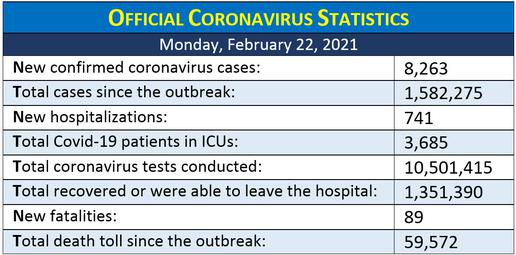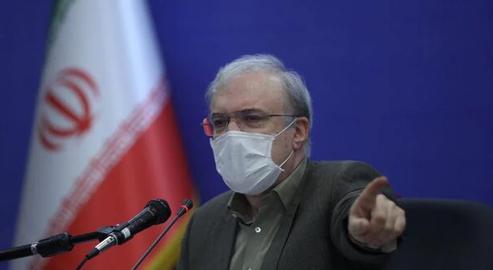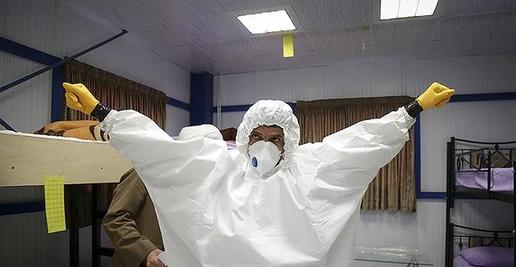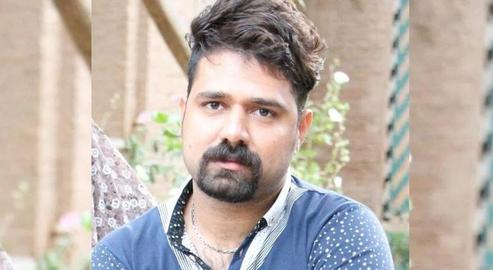On Monday, February 22, the Iranian Foreign Ministry announced that China would be donating 250,000 doses of coronavirus vaccine made by China National Pharmaceutical Group, commonly known as Sinopharm, to Iran.
Separately, Health Minister Saeed Namaki reported that round two of the vaccination of medical staff and health workers would get under way on February 23. So far, having accumulated 120,000 doses of the Russian Sputnik V vaccine and the promised 250,000 doses from China, Iran has enough vaccine to inoculate 185,000 people in total.
Reports from the southwestern province of Khuzestan continue to be alarming. In big cities such as Abadan and Ahvaz the highly contagious coronavirus variant first detected in the United Kingdom is now infecting more and more people, and hospitals are at capacity or – as local officials put it – are indeed “overflowing”. Still, the government and the National Coronavirus Taskforce continue to resist calls for a two-week lockdown of the province.
New Round of Vaccinations to Start
The vaccination of another 100,000 medical personnel and health workers will start on Tuesday, February 23, announced Health Minister Saeed Namaki. Iran has so far procured 120,000 doses of the Russian Sputnik V coronavirus vaccine – by itself, enough to inoculate a total of 60,000 people – so it is not clear how “another” 100,000 are to be vaccinated when Iran has not received any other shipment. That said Namaki may be counting on the Chinese-made vaccine now expected to arrive next week.
“I was not ready to talk about it until technical details are resolved, but I must tell you that the Chinese government has donated 250,000 doses of the Sinopharm vaccine to Iran,” said Saeed Khatibzadeh, Foreign Ministry spokesman.
According to earlier announcements, around 34,000 frontline medical personnel and health workers who work in ICUs will have priority. After them it will be the turn of other health workers and medical staff.
“This is Not the Way to Run the Country”
In his statements on Monday, Namaki was highly critical of uncontrolled traffic across the border with Iraq, which has been officially closed in three Iranian provinces. “Last night they informed me from Ilam that a young, pregnant woman had died because of coronavirus, and they had delivered the baby by cesarean section,” he said. “Who is responsible for the death of this Iranian woman?... When was it that we allowed them to cross the border on buses? A bus enters Iran through its western border and goes to a city, and then we find positive cases in that city without us knowing anything about it. This is not the way to run the country.” Namaki went on to complain: “Nobody tells me who comes and who goes, making me into a morgue manager instead of the health minister.”
Iran’s Latest Coronavirus Statistics
In her daily briefing for February 22, Health Ministry spokeswoman Dr. Sima Sadat Lari announced the official coronavirus statistics for the past 24 hours:

Provinces Round-up
According to the latest figures announced by Dr. Lari, 11 Iranian cities are currently in a red state of alert, while 52 cities are in an orange state of alert, 217 cities are on yellow alert and 168 are rated blue. All cities in a state of red alert are in the province of Khuzestan.
Khuzestan continues to be in a critical situation and calls for a two-week complete lockdown of the province continue. In the past 24 hours the presidents of the six biggest hospitals in Khuzestan’s provincial capital of Ahvaz, and also Karim Hosseini, chairman of the Khuzestan Caucus in the Iranian Parliament, have called for a lockdown of the province to prevent the coronavirus crisis from getting worse.
A day earlier, in a letter to Health Minister Saeed Namaki, Dr. Mohammad Esmail Motlagh, an advisor to the Health Ministry, had asked for a two-week complete quarantine of Khuzestan amid the “unrestrained” surge of coronavirus in the province.
So far, however, these requests have fallen on deaf ears in central government. The western border with Iraq has been closed but traffic between neighboring border provinces has not been restricted. At the same time, local officials report that despite the official ban, two border crossing are still open to “commercial” vehicles. The government has announced that it will build facilities in border terminals to quarantine travelers entering Iran until their test results are known.
Referring to the negligence in closing borders only long after cases of infection with the coronavirus variant were discovered, Dr. Mohammad Alavi, vice president of Ahvaz Jondishapur University of Medical Sciences, said on February 22: “With the increase in the number of patients, we expected that borders would be closed or would be controlled more rigorously. But the borders remained open and travelers were allowed to enter Khuzestan. As a result, the virus was able to enter Khuzestan and the country easily.”
He added: “We say that traffic must stop but this requires the closing of government offices. “However, these offices are still open and some are functioning at full capacity.”
To prevent gatherings of crowds, on Sunday, February 21, electricity to the central bazaar and a number of streets in Ahvaz were cut off at 6.45pm by the order of city’s governor. Jamal Alami Neysi, the governor, reiterated that the number of Covid-19 fatalities in Ahvaz had risen and all ICUs were at capacity. He said that most businesses are now closed and observing restrictions but some shops have remained open and these businesses have either been warned or forcibly shut down.
Until now the only way to confirm whether a patient has been infected with the coronavirus alternative was to send samples to Tehran’s Pasteur institute. But now, Abadan University of Medical Sciences reports that it has received test kits with which to diagnose the variant. The quantity of test kits received by the university remains unknown. It was also announced that three neighborhoods in Abadan have been locked down because of their high rate of infections.
With the hospitalization of 42 new Covid-19 patients in Alborz, the number of inpatients in the province has reached 299, reported Dr. Mohammad Fathi, president of Alborz University of Medical Sciences. In the past 24 hours no other confirmed Covid-19 patient died and the official death toll in the province remains at 2,729.
So far three confirmed cases of infection with the coronavirus variant have been found in Alborz and two of them have died, said Nour Mohammad Fardi, director of Alborz Coronavirus Taskforce. He added that currently 38 cases of suspected infection with the variant are in “special quarantine”, and asked people to observe health protocols more strictly.
In West Azerbaijan, 274 patients tested positive for Covid-19 and 64 of them were hospitalized, according to West Azerbaijan University of Medical Sciences. Currently, 495 cases of Covid-19 are hospitalized in the province, 136 of them in ICUs. Of the latter group, 31 are breathing through ventilators.
visit the accountability section
In this section of Iran Wire, you can contact the officials and launch your campaign for various problems



























comments